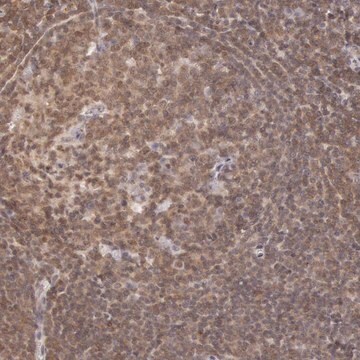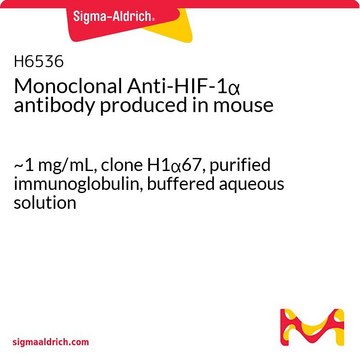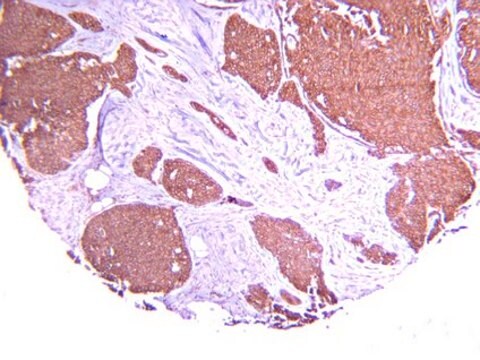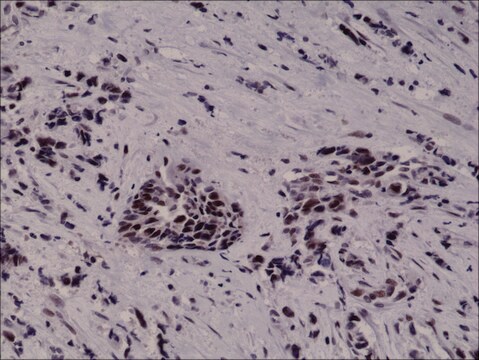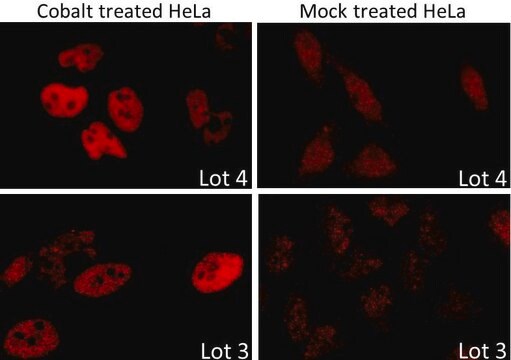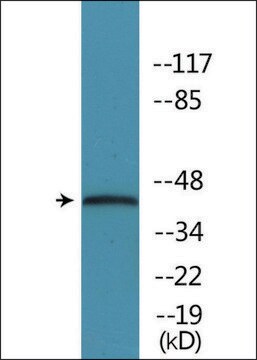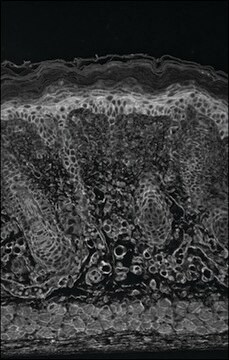ABE279
Anti-HIF-1α Antibody
from rabbit, purified by affinity chromatography
Synonym(s):
ARNT interacting protein, ARNT-interacting protein, Basic-helix-loop-helix-PAS protein MOP1, HIF-1 alpha, HIF1 alpha, Member of PAS protein 1, hypoxia inducible factor 1, alpha subunit (basic helix-loop-helix transcription factor), hypoxia-inducible fact
About This Item
Recommended Products
biological source
rabbit
Quality Level
antibody form
affinity isolated antibody
antibody product type
primary antibodies
clone
polyclonal
purified by
affinity chromatography
species reactivity
human
technique(s)
western blot: suitable
NCBI accession no.
UniProt accession no.
shipped in
wet ice
target post-translational modification
unmodified
Gene Information
human ... HIF1A(3091)
General description
Immunogen
Application
Epigenetics & Nuclear Function
Transcription Factors
Quality
Western Blot Analysis: 1 µg/mL of this antibody detected HIF-1α on 10 µg of cobalt chloride untreated and treated MCF-7 cell lysates.
Target description
Linkage
Physical form
Storage and Stability
Analysis Note
Cobalt chloride untreated and treated MCF-7 cell lysates
Other Notes
Disclaimer
Not finding the right product?
Try our Product Selector Tool.
Storage Class
12 - Non Combustible Liquids
wgk_germany
WGK 1
flash_point_f
Not applicable
flash_point_c
Not applicable
Certificates of Analysis (COA)
Search for Certificates of Analysis (COA) by entering the products Lot/Batch Number. Lot and Batch Numbers can be found on a product’s label following the words ‘Lot’ or ‘Batch’.
Already Own This Product?
Find documentation for the products that you have recently purchased in the Document Library.
Our team of scientists has experience in all areas of research including Life Science, Material Science, Chemical Synthesis, Chromatography, Analytical and many others.
Contact Technical Service